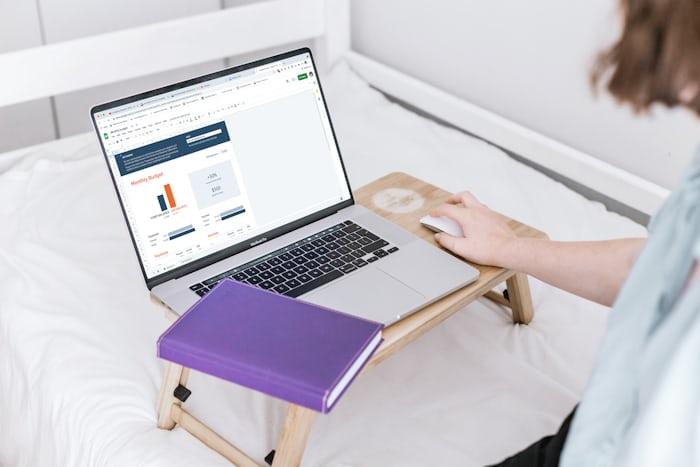Last updated Jul. 14, 2024 by Peter Jakes
Selling your goods, whether they are unused household items, handmade crafts, or a business offering products, has never been easier thanks to the internet. As we step into 2023, the plethora of online and local marketplaces enables sellers to reach audiences both near and far. In this comprehensive guide, we’ll explore the 27 best websites to sell stuff locally and online.
1. eBay
Founded in 1995, eBay is an online auction and shopping website where people and businesses buy and sell a wide variety of goods and services worldwide.
2. Facebook Marketplace
Facebook Marketplace offers a convenient destination for people to discover, buy and sell items. All from the comfort of your favorite social media platform.
3. Craigslist
Craigslist is a classified advertisements website with sections devoted to jobs, housing, for sale, items wanted, services, community service, gigs, resumes, and discussion forums.
4. Amazon
Amazon is an online shopping platform where millions of products are sold globally, and sellers can list their items in various categories.
5. Etsy
Etsy focuses on handmade, vintage items, and craft supplies. Sellers can open their boutique-like store.
6. OfferUp
OfferUp is a mobile-driven local marketplace that competes directly with Craigslist. It’s focused on buying and selling items locally.
7. Poshmark
Poshmark is especially popular for fashion, offering new and used clothing from individuals and boutiques.
8. Letgo
Letgo was merged with OfferUp, continuing as a popular mobile app for selling locally.
9. Depop
A fashion marketplace famous for millennial and Gen Z users. Known for second-hand and vintage clothes.
10. Bonanza
Bonanza offers a smooth-selling experience and focuses on unique, niche inventory items.
✓ Short Answer
Matched content refers to ads that match the content of the page in which they are displayed. This ensures the advertisements are relevant to the content the user is consuming, thereby enhancing the user experience and increasing the likelihood of ad interaction.
11. Chairish
Chairish is the go-to marketplace for high-end furniture, decor, and art.
12. Mercari
Mercari is a Japanese e-commerce company founded in 2013 offering both local and national selling options.
13. Vinted
Primarily a fashion-focused app, Vinted also includes home goods.
14. Swappa
Swappa is popular for selling used technology like phones, laptops, and cameras.
15. Ruby Lane
Ruby Lane focuses on vintage collectibles and art, perfect for antique enthusiasts.
16. Gazelle
Gazelle is ideal for selling used electronics, particularly smartphones, tablets, and computers.
17. ThredUp
An online consignment store for women’s and kids’ clothing, ThredUp offers hassle-free reselling.
18. Kidizen
Kidizen is the premier marketplace for parents selling children’s clothes, toys, and accessories.
19. BookScouter
Ideal for selling used textbooks and books, offering a comparison of vendors’ buy-back prices.
20. Shpock
A marketplace app for local sales, Shpock is often considered the “boot sale” app for its ease of use.
21. Nextdoor
Nextdoor’s marketplace leverages your local community for selling and giving away items.
22. VarageSale
VarageSale is a local-selling app combining the convenience of online selling with the appeal of community interaction.
23. eBid
An online auction site that often gets compared to eBay for its wide variety of available items.
24. Zazzle
Zazzle allows sellers to create customized products, from clothing to home goods, for sale directly on their platform.
25. Decluttr
Decluttr buys tech items directly from users, making it easy to unload used gadgets.
26. Wanelo
Short for “Want, Need, Love,” Wanelo connects sellers and buyers in a visually driven retail experience.
27. Discogs
Discogs caters specifically to music lovers looking to buy and sell records and CDs.
FAQs
1. How do I choose the right platform for selling online or locally?
Different platforms cater to different types of goods and target audiences. If you’re selling handmade crafts, Etsy is ideal, while electronics may fare better on Gazelle or Swappa. Local sales can be facilitated through apps like OfferUp or Facebook Marketplace.
2. Are these selling platforms free?
Most of these platforms are free to join, but many charge a fee per sale, whether as a listing fee, percentage of the sale, or shipping cost.
3. Is it safe to sell items on these platforms?
Generally, it’s safe, but taking precautions like verifying buyers/sellers, reading reviews, and meeting in public places for local sales is recommended.
4. Can I sell internationally?
Some platforms like eBay and Etsy support international sales, while others focus on local transactions exclusively.
5. How can I ensure my item sells quickly?
High-quality photos, detailed and honest descriptions, fair pricing, and prompt, friendly communication with potential buyers can increase your chances of a quick sale.
6. What should I do if I encounter a problem with a buyer or seller?
Most platforms offer customer support or dispute resolution services. Always check each website’s policies and procedures before engaging in disputes.
7. How can I maximize my profits?
Research current market prices for your items, understand the fee structures, invest in good-quality photos, and optimize your listings with compelling titles and descriptions.
Selling items online and locally in 2023 is streamlined by these diverse platforms, each offering unique features catered to various types of goods, target audiences, and seller preferences. With the right approach, you can make the most of these marketplaces to declutter, earn, or grow your business online.



